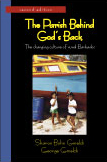“Beautifully written, this book deals with all the big issues of our time—slavery, colonialism, migration, tourism, and globalization.” — Robin Isserles, City University of New York
“This is one of my all-time favorite ethnographies. Inviting to read, it raises and examines a series of interrelated issues involving change and globalization. It is very effective in communicating how Barbadians see we North Americans.” — Brian V. Siegel, Furman University
“Besides being lively and well-rounded, The Parish makes strategic use of comparisons to U.S. culture so that students are also learning about themselves. . . . It presents an excellent frame of reference for considering the costs as well as the benefits of modernization, U.S. style.” — Katherine Browne, Colorado State University
“Provocative. A path-breaking study of a rural parish in which the authors have expertly distilled the essence of Barbadian life.” — Trevor Marshall, University of the West Indies

180 pages, $25.95 list
1-57766-775-1
978-1-57766-775-9
© 2012
paperback
eBook availability
Also by
George Gmelch
George Gmelch
The Parish Behind God's Back
The Changing Culture of Rural Barbados
Second Edition
For this latest edition, the authors returned to Barbados to update the changing face of life in St. Lucy, the parish “behind God’s back”—the island’s most rural district. After discussing Barbados’s colonial history as a plantation society based on slavery and the economy’s recent conversion from sugar to tourism, they turn to everyday life in St. Lucy: patterns of work, gender relations, religion, and the meaning of “community.” The book concludes by examining the global forces and media—television, tourism, travel, and the Internet—that connect villagers to the outside and most directly affect their lives.
Written with students in mind, this highly readable, illustrated, and thought-provoking account is ideal for courses in cultural anthropology and Caribbean studies. An appendix describes the changes North American students experienced as a result of participating in the anthropology field schools the authors ran in Barbados over a twenty-year period.
Written with students in mind, this highly readable, illustrated, and thought-provoking account is ideal for courses in cultural anthropology and Caribbean studies. An appendix describes the changes North American students experienced as a result of participating in the anthropology field schools the authors ran in Barbados over a twenty-year period.
Reactions
Introduction
1. Island and Parish
2. Colonialism, Sugar, and Slavery
3. From Sugar to Tourism
4. Farmer, Fisher, Baker, Maid
5. Gender and the Life Cycle
6. Community: Past and Present
7. Religion
8. The Global Village
Final Thoughts
1. Island and Parish
2. Colonialism, Sugar, and Slavery
3. From Sugar to Tourism
4. Farmer, Fisher, Baker, Maid
5. Gender and the Life Cycle
6. Community: Past and Present
7. Religion
8. The Global Village
Final Thoughts